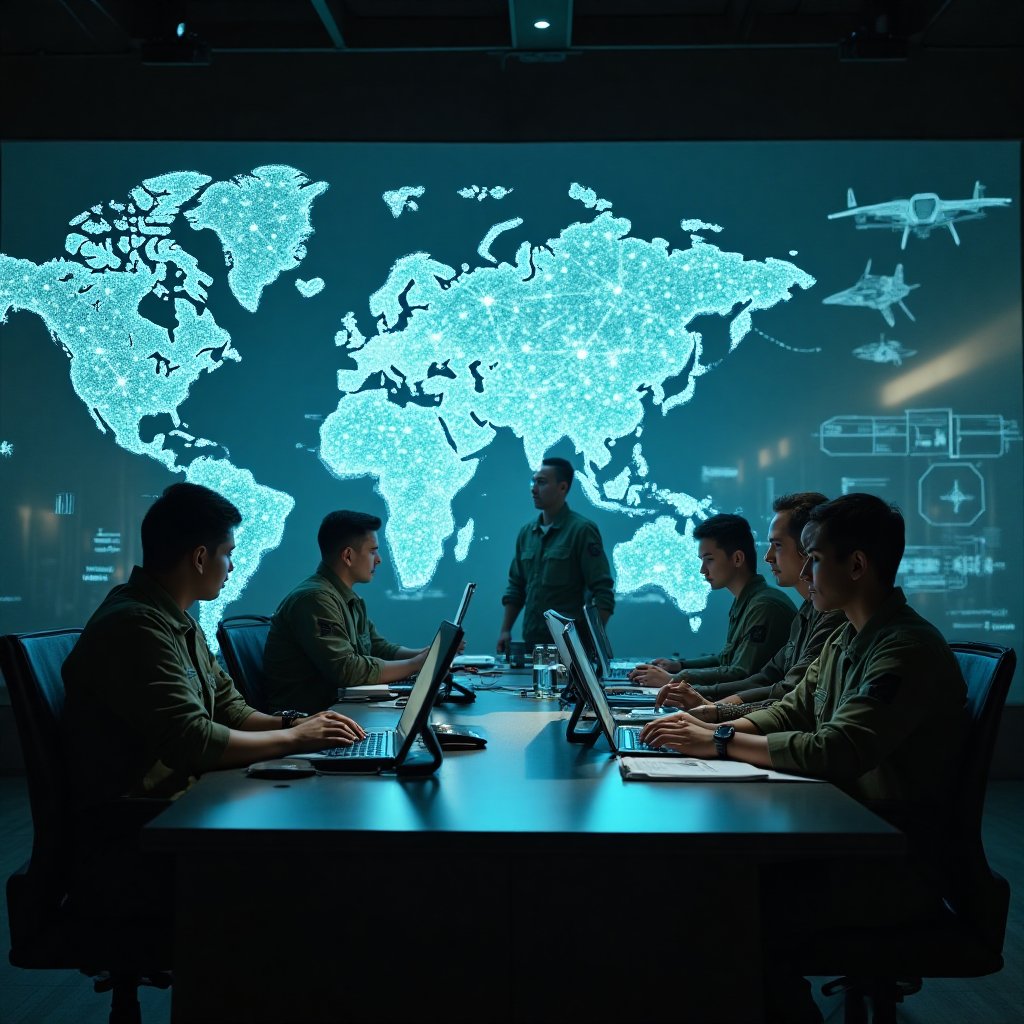OpenAI has recently made headlines by securing a substantial $200 million contract with the U.S. Defense Department, a move that has raised eyebrows across various sectors. This partnership highlights how artificial intelligence (AI) is becoming a critical player in national security. Understanding this development matters because it connects cutting-edge technology with the safety and well-being of the public. The implications of this relationship extend beyond just technology—they touch on ethics, security, and even the future of warfare.
Let’s break down what this means. OpenAI, known for its revolutionary AI technologies such as ChatGPT and DALL-E, will now leverage its expertise to support defense initiatives. Think of it this way: AI isn’t just a tool for apps and engaging conversations anymore; it’s now merging with the military infrastructure, potentially changing how defense operations are conducted. This shift could mean better decision-making in crisis situations, enhanced risk assessment, and even improving systems for cybersecurity.
What the Contract Entails
According to The Verge's report, this contract allows OpenAI to provide data services and build AI models that can aid the U.S. military. Here are a few components of what this partnership might encompass:
- AI Systems Development: This includes creating advanced algorithms that can analyze vast amounts of data quickly to aid military planning.
- Enhanced Decision-Making: With AI, commanders can receive recommendations based on analysis that human brains simply can't process within a short time frame.
- Crisis Management: AI tools can be developed to simulate various scenarios in real-time, helping military leaders respond better and faster.
The Broader Impact
This partnership raises critical questions about the intersection of technology and military power. Consider this: if AI can enhance military effectiveness, what does that mean for peacekeeping efforts globally? Will nations feel compelled to enhance their own military AI capabilities, potentially leading to an arms race in AI technology? This contract could be the stepping stone toward new frontiers in both warfare and peace.
It's natural to feel apprehensive about such developments. The idea of AI in warfare can evoke fear and concern about ethical implications. Are we, as a society, ready for machines to play a role in life-and-death scenarios? Many experts argue that while technology can offer significant advantages, it also brings serious ethical challenges, especially regarding accountability in military actions.
Statistics and Figures
Here are some notable statistics that showcase the rise of AI in defense:
- As of 2022, global defense spending on AI technologies was valued at over $6 billion, according to a Business Insider report.
- Over 70% of defense agencies around the world are currently investing or planning to invest in AI within the next two years (source: Defense One).
What Are Experts Saying?
Thought leaders in technology and defense are divided on the implications of such partnerships. Some applaud the technological advancements, believing they can save lives and improve response times in emergencies. Others worry about the loss of human control in warfare and the ethical ramifications of using AI in potentially lethal scenarios.
For instance, one prominent AI ethics researcher, Dr. Kate Crawford, points out that military applications of AI could lead to unpredictable behavior in combat situations, emphasizing the need for strict regulations and transparent practices. Meanwhile, military officials assert that AI could act as a force multiplier, where the effectiveness of a smaller force can be enhanced through advanced technologies.
Addressing Potential Objections
It's essential to consider the pitfalls of this partnership. Critics often raise concerns about:
- Accountability: If an AI system makes a harmful decision, who is responsible?
- Bias: AI trained on incomplete data may produce biased outcomes, which is particularly concerning in military contexts.
- Ethical Use: Should AI be allowed to make life-and-death decisions?
Conclusion: A New Era of AI and Warfare
The $200 million contract between OpenAI and the U.S. Defense Department marks a turning point in how technology interacts with military strategies. This relationship raises a plethora of questions and emotions. It can evoke hope for improved security and efficiency, while also igniting fear over the ethical implications of using AI in warfare. The balance between innovation and ethics must be struck, as the stakes could not be higher.
As we navigate this new terrain, it’s crucial for everyone—citizens, policymakers, and tech enthusiasts—to engage in discussions about the implications of AI in defense. How will it shape our future? Will we allow it to enhance our safety, or will we watch as it transforms warfare into a video game of sorts?
What do you believe about this partnership? Should AI technologies find a place in national defense, or does it cross a moral line? Join the conversation below, share your thoughts, and become a part of the iNthacity community—a shining city on the web, where ideas flourish and debates thrive! Become a citizen of iNthacity today!
Disclaimer: This article may contain affiliate links. If you click on these links and make a purchase, we may receive a commission at no additional cost to you. Our recommendations and reviews are always independent and objective, aiming to provide you with the best information and resources.
Get Exclusive Stories, Photos, Art & Offers - Subscribe Today!
























Post Comment
You must be logged in to post a comment.